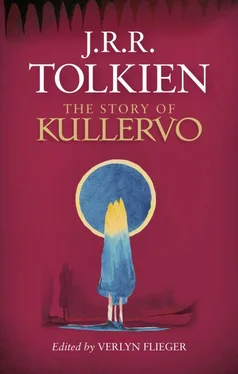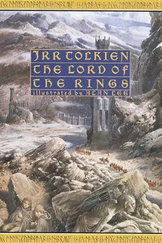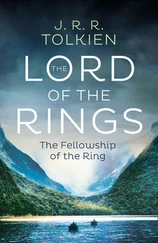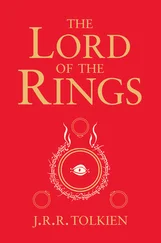Then Palikki’s little damsel
And Telenda her companion
Take a whip of birch to scourge them
And of juniper to drive them
From the hold of Samyan’s cattle
And the gloomy slopes of alder
In the milktide of the evening.
[ As above, these lines are offset to indicate a shift in tone and separate them from those preceding. Kirby’s Argument notes a charm for ‘protection from bears in the pastures’ (p. 78), while Magoun supplies the heading ‘Admonitory Charms Against Bears, Lines 315–542 (p. 232). ]
O thou Uru O my darling
My Honeypawthat rules the forest
Let us call a truce together
In the fine days of the summer
In the good Creator’s summer
In the days of Ilu’s laughter
That thou sleepst upon the meadow
With thine ears thrust into stubble
Or conceal thee in the thickets
That thou mayst not hear cowbells
Nor the talking of the herdsman.
Let the tinkling and the lowing
And the ringing in the heathland
Put no frenzy yet upon thee
Nor thy teeth be seized with longing.
Rather wander in the marshes
And the tangle of the forest.
Let thy growl be lost in wastelands
And thy hunger wait the season
When in Samyan is the honey
All fermenting on the hillslopes
Of the golden land of Kēme
Neath the faring bees a-humming.
Let us make this league eternal
And an endless peace between us
That we live in peace in summer,
In the good Creator’s summer.
[ As with the other separations, this indentation is offset to indicate change in tone, in this case the conclusion or peroration of the lady’s prayers. Neither Kirby nor Magoun so distinguishes these lines. ]
All this prayer and all this chanting
O then Ukko silver monarch
Hearken to my sweet entreaty.
Bind in leash the dogs of Kūru
And enchain the forest wild things
And in Ilwe set the Sun-star
And let all the days be golden.
Now Āsemo’s wife was a great chanter of prayers — and also a most grasping woman and over heedful of her goods: and that is to be understood [by] the length of her prayer to Ilukko and his maidens for her kine which were very fair and sleek.
But now Sāri had gone some way, and set his food into his wallet as he drove the kine over the water meadows and swamps and out across the heathland to the rich edge of the woodland, and ever as he went he was grieving and murmuring to himself and saying ‘Woe to me wretched youth, ill and hard going black fortune: wheresoever I turn my path nothing awaits me but idleness and endless gazing at the tails of oxen ever tramping through the marshes and the dreary level country.’ Then coming to a slope in the sun he sat him there and rested and took out his lunch and marvelled at its weight and said, ‘Wife of Āsemo thou art not wont to dole me out such a weight of food.’
Then he fell athinking of his life and the luxury of this spiteful mistress, and to long for wheaten bread in slices thick with butter and cakes of finest bakery and for a draught other than water for the quenching of his thirst. Dry crusts, thought he, only does she give me for my chewing and oaten cake at best and with this chaff and straw or the bark of fir not seldom mingled: and cabbage whence her cur has eaten all the fat, and then he bethought him of his wild free early days and of Wanone [ sic ] and his folk, and so slept till a bird prating of evening awoke him and [he] drove the cattle to rest and sat him on a hillock and took from his back his wallet.
And he opened it and turned it about, saying ‘many a cake without is handsome but within is ill favoured: and is as this: wheat above and oaten behind’, and being in heavy mood and not over eager for his food he took his great knife wherewith to cut the cake and it strove through the scanty crust and ground with such force on the flint that its edge was turned and its point snapped: and to this end came Sikki the heirloom of Kampa. And Sāri fell first into white wrath and then into tears for he treasured that heirloom before silver or gold, and said:
O my Sikki O my comrade
O thou iron of Kalervo
Which that hero wore and wielded
Nought I had to love in sorrow
But my knife the picture graver.
And against a stone ’tis broken
By the spite of that ill woman.
O my Sikki O my Sikki
O thou iron of Kalervo.
And evil thoughts whispered to him and the fierceness of the wild came into his heart and with his fingers he wove a design of wrath and vengeance against the fair wife of Āsemo: and taking a switch of birch and of juniper from a thicket he drove all the kine and cattle into the water marshes and trackless morasses. And he called on the wolves and bears each to take a half as their prey and to save him only a bone from the leg of Urula the most aged cow of the herd. And from this he made a great pipe and blew shrilly and strangely upon it: and this was magic of Sāri’s own nor do men say whence he learnt: and he sang thus the wolves to cattle and the bears to oxen, and as the sun was westering redly and bending toward the pine-trees nigh the time of milking, he drove the bears and wolves homeward before him, weary and dusty with his weeping on the ground and enchanting of the wild things.
Now when he drew nigh the farmyard he laid his commands upon the beasts that when the smith’s wife came to look about her and stooped down to milk them, they should seize her and crunch her in their teeth.
And so he went along the pathway piping broken and strange music from the cow-bone pipe: thrice he blew on the hill slope and six times at the garden wall. And Āsemo’s wife marvelled whence the neatherdhad gotten his cow bone for his pipe but heeded not overmuch the matter, for long had she awaited the cows for milking. And she gave thanks to Ilu for the return of her herd: and went out and bade Sāri stay his earsplitting din and then said she to Āsemo’s mother,
Mother ’tis the kine need milking.
Do thou go and tend the cattle
For meseems I cannot finish
Kneading dough as I would have it.
But Sāri mocked her saying that no thrifty housewife would send another and [an] old woman to milk the kine. So Āsemo’s wife went swiftly to the sheds and set herself to milk her kine, and gazed upon the herd saying, ‘Beauteous is the herd to look on and sleek the horned oxen and well filled are the udders of the kine.’
Then she stooped to the milking and lo a wolf sprang at her and a bear seized her in his grim embrace and they tore her fiercely and crunched her bones, and thus was her jesting and mockery and spite repaid, and the cruel wife brought herself to weeping: and Sāri stood by neither exulting nor relenting and she cried to him, ‘Ill dost thou most wicked of neatherds to drive bears and mighty wolves to these peaceful yards.’ Then Sāri chid her for her ill and spite toward himself and for the breaking of his cherished heirloom.
Then Āsemo’s wife wheedling said, ‘Come, thou herdboy, dearest herdboy, come thou apple of this homestead, alter thou thy grim resolve and I beg thee lift this magic from me and release the wolf’s jaws and the bear’s limbs from me. Better raiment will I give you then an you do so, and handsome ornaments, and wheaten bread and butter and the sweetest draughts of milk for your draining: nor shalt thou labour aught for a year and but lightly in the second.’
Then said Sāri, ‘If thou diest so mayest thou perish; there is room enough in Amuntufor thee.’
Then Āsemo’s wife in death cursed him using his name and [very?] father’s and cried on Ukko the highest of Gods to hear her words.
Woe thou Sāri Kampa’s offspring
Woe thou crooked fated child Nyelid
Ill thy fortune dark thy faring
On the roadway of thy lifetime.
Thou has trod the ways of thralldom
And the trackless waste of exile
But thy end shall be more awful
And a tale to men forever
Of a fate of woe [and] horror
Worse than anguish in Amuntu.
Men shall hither come from Loke
In the mirklands far to northward
And shall hither come from Same
In the southways of the summer
And shall fare to us from Kēme
And from the Ocean bath to Westward
But shall shudder when they hear them
Thy fate and end of terror.
To woe thou who as [ illegible ]
Читать дальше












